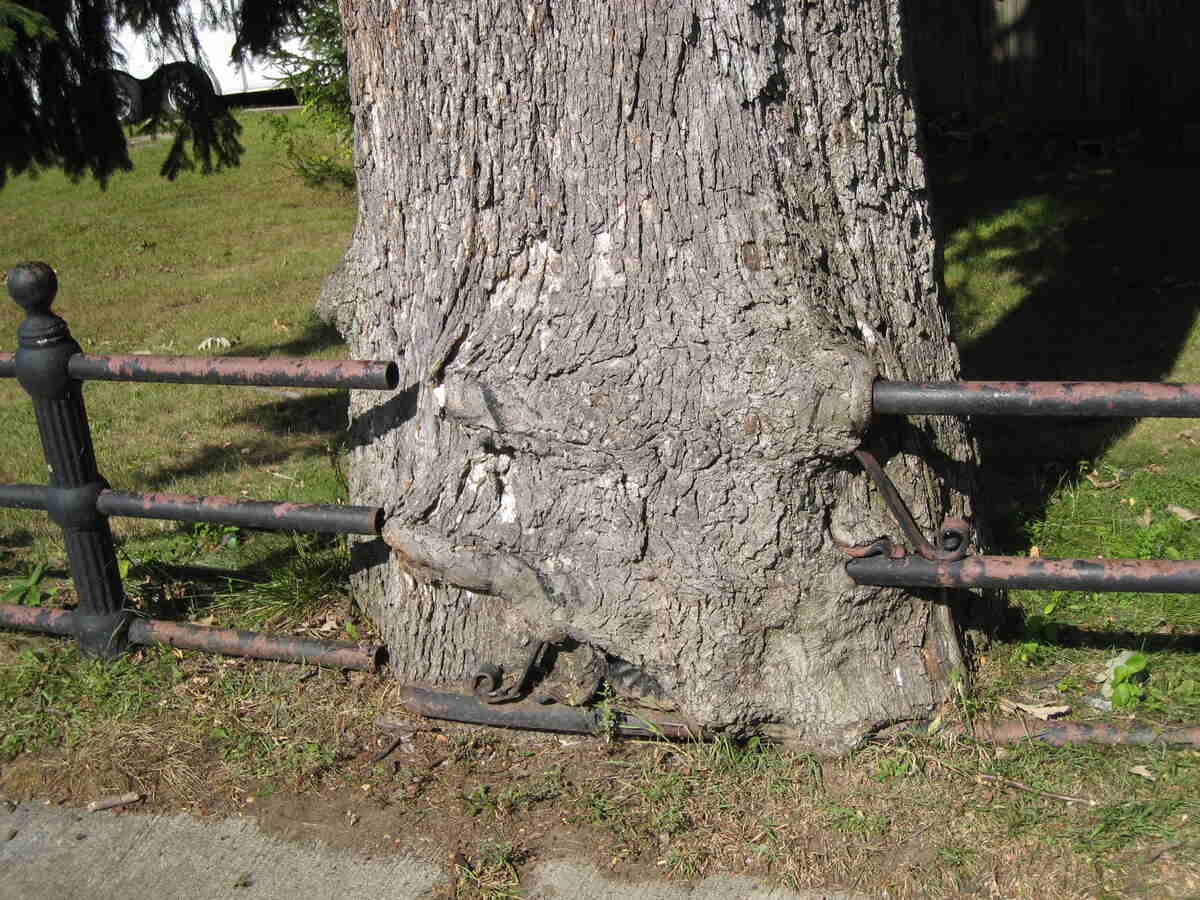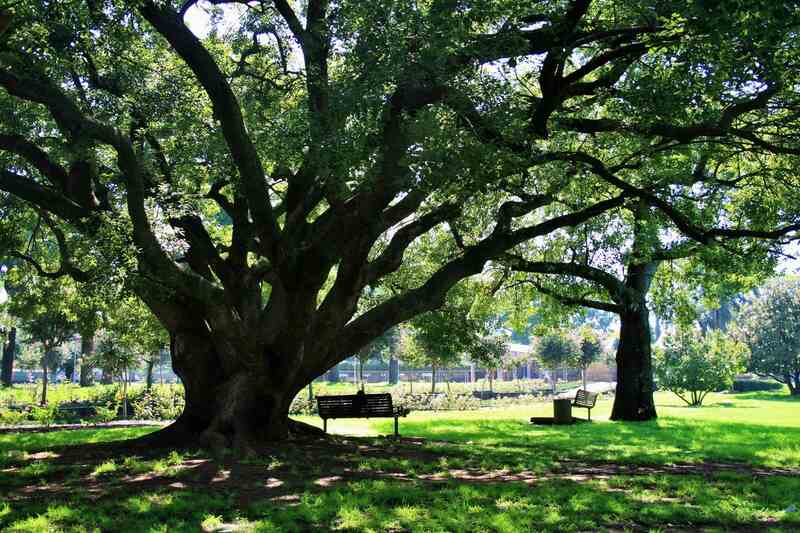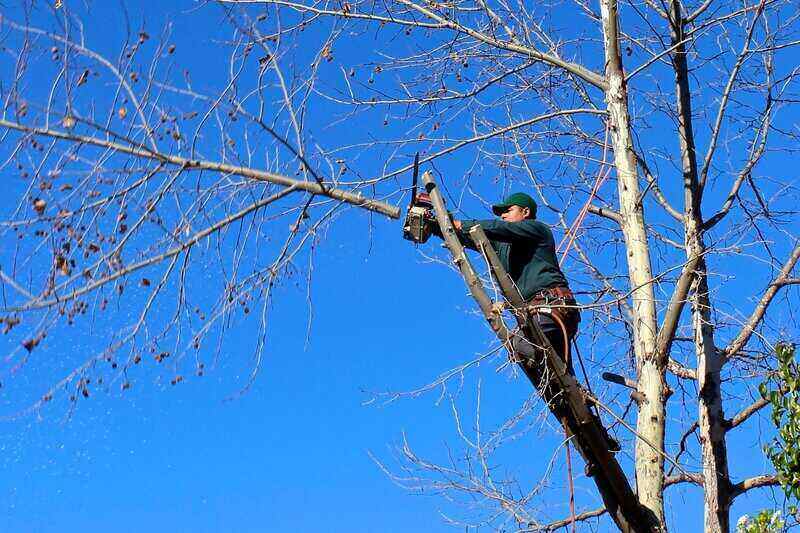

That massive oak tree is breathtaking, but its overhanging branches are damaging the shingles on your home’s roof. You want to trim the offending tree branches, but the tree sits on the property line between your place and your neighbor’s. Would you break the law by trimming the branches of the trees on a property line?
In this article:
You may or may not break the law by trimming those tree branches, but be aware that inadvertently damaging the tree could become very costly.
“It is predictably difficult to justify paying attorney’s fees over a tree — on either side. But disputes over trees near the property line can involve large sums of money, especially if the tree is damaged or dies,” says Cleve Clinton, partner at Gray Reed, Attorneys and Counselors, based in Dallas and Houston.
Aside from the aesthetic value of the tree and its contribution to the environment, a tree may have a monetary value to the homeowner, depending on the location and the yard’s landscaping. This value could be based on:
If the tree is on the property line, both property owners share the tree’s value and are responsible for upkeep on their side of the property line. But there are things to consider if there’s a problem with a tree on a shared property line.

Laws vary among states, counties, and cities, so it is important to consult with local authorities before you break out the saw. Generally, if any part of the trunk is on both your and your neighbor’s property, it is considered the common property of both homeowners.
Key takeaway: Neither you or your neighbor can damage or destroy the tree without the other’s consent.
Tree trimming: You are allowed to maintain your property not only to the lot line, but also under the ground and the sky above it. Trimming is only legal to the property line and is the responsibility of the party doing the trimming, says Clinton.
“Absent clear danger, neither party can trespass on the other’s property to trim a tree. If a tree is damaged or destroyed by a neighbor, it is the responsibility of the person causing the damage — conceivably in dollar damages,” he said.
Other tree maintenance: According to the legal advice website NOLO, the tree doesn’t have to be chopped down to cause a legal battle. Whether you decide to trim branches, cut tree roots, or treat parts of the tree with a chemical that ultimately damages that tree or your neighbor’s trees, you could be liable for damages.
What can you do about overhanging branches or roots that damage sewer lines or leaves that clog gutters? What about a tree with broken limbs or cracked trunks?
If it’s a dangerous tree, you have the right to trim branches and cut and remove tree roots that intrude into pipes or foundations within your real estate. This includes a tree whose trunk is entirely on a neighboring property. But you are also responsible for any costs incurred to do so.
“However, an arborist should be consulted, and perhaps retained, to trim or cut invading roots,” says Clinton. “Any permanent damage to a neighboring tree is the responsibility of the property owner who trims (or) cuts the roots.”
A couple of things to consider:
Be careful: If you decide to trim the tree’s branches, keep its health in mind. If you cut back a branch and disease attacks it, it may no longer be a healthy tree.
Don’t chop without a plan: According to NOLO, some case law exists in which a property owner was awarded damages because the neighbors trimmed a tree to the point where it was no longer visually pleasing.
In most locations (and laws may vary in your area), property owners are responsible for boundary tree damages on their own property. But, what if that tree’s trunk is on your property, and a storm sends a branch through the neighbor’s window? It’s not your responsibility, since it was caused by an act of God. Your neighbor will have to file an insurance claim.
The exception: Let’s say the branch has been dead for years. Your neighbor has complained and asked you to cut it down, but you failed to do so. In that case, you might be liable.
The same is true for a tree whose trunk is in the neighbor’s yard: If that massive snowstorm causes a big branch to fall on your car, you can’t expect the neighbor to pay for the damage. That’s between you and your insurance company — unless your neighbor has been negligent in taking care of a dead branch.
The short answer is no. If the tree trunk is on the property line, you and your neighbor own the tree. You must both agree to remove it.
Courts give great deference to private property lines in the U.S. Your neighbor may not come into your yard to trim a tree’s branches without your permission. The same is true for you.
But this is where legalities end and being a good neighbor begins. If you like the tree and intend to prune it on your property, Clinton says that it’s best to ask permission for the tree trimmer to go into the neighbor’s yard. That way, trimming around the entire tree is consistent and makes all sides of the tree look good.
He adds that the concepts of tree ownership, trespass, and damages are essentially the same in all states. “However, the specific facts and local laws (such as municipal ordinances that prohibit unpermitted tree removal) will control the final result.
Bottom line: “Good fences and good trees make good neighbors,” Clinton says. “Communication counts — and friendly, get-along communication at that.”
To keep trees and neighborly relationships healthy and strong, sometimes it’s best to call in the pros. A local, professional arborist is your best bet to maintain healthy, robust trees on a property line and across your landscape.
Main Image Credit: Sethoscope / Flickr / CC BY-SA 2.0
Rosie Wolf Williams has kept bees, grown vegetables and flowers for farmers markets, and never misses an opportunity to have a conversation with an interesting tree.
Hiring a pro is always a good option. Get a free quote for service in your area.